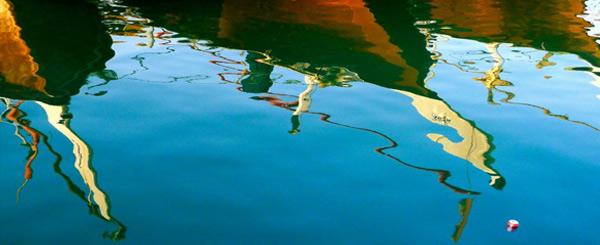AL KHIDR

Surah Al Kahf, which we are encouraged to recite every Friday, contains four main stories for our reflection and guidance. These are The Companions of the Cave, The Companion of the Two Gardens, Dhul Qarnain and Al Khidr.
Who was Al Khidr?
The story of Al Khidr occurred during the prophethood of Musa (AS). Musa (AS) was one of the mightiest messengers of Allah, but had a humbling experience on his lack of knowledge after his encounter with Al Khidr.
By all accounts, Al Khidr was extremely wise and pious, and was granted knowledge from the Kingdom of Allah. Some scholars speculate that he was a prophet, however, there is no conclusive evidence in the Qur’an or Sunnah on this.
The story begins with the assertion by Musa (AS) to his people that he was the most learned amongst them. As a result he was immediately reprimanded by Allah, and in fact Allah corrected him and told him that there was someone more learned.
Narrated Ubai bin Ka’b: The Prophet (SAW) said: “Once Musa (AS) stood up and addressed Bani Israel. He was asked: “Who is the most learned man amongst the people?” He said: “I am the most learned.” Allah admonished Musa as he did not attribute absolute knowledge to Him (Allah).“
So Allah inspired to Musa (AS), “At the junction of the two seas there is a slave of mine who is more learned than you.” Naturally, Musa (AS) was curious to meet such a person and said: “O my Lord! How can I meet him?” Allah said: “Take a fish in a large basket (and proceed) and you will find him at the place where you will lose the fish.“
Musa (AS) was determined to meet this learned person, even if it involved years of travel. So he set out along with his (servant) boy and carried the fish in a basket until they reached a rock, where they lay down and took a nap. Without them being aware, the fish miraculously came back to life, jumped from the basket and took its way into the sea. When they woke up, they continued the journey without realising that the fish was gone.
Of this, the Qur’an says:
But when they reached the junction of the two seas, they forgot their fish, and it took its way through the sea as in a tunnel. So when they had passed further on (beyond that fixed place), Musa said to his boy-servant: “Bring us our morning meal; truly, we have suffered much fatigue in this, our journey.” (Al Qur’an 18:61 – 18:62)
There the (servant) boy told Musa (AS): “Do you remember when we betook ourselves to the rock, I indeed forgot the fish.” Musa (AS) remarked: “That is what we have been seeking.”
So the pair retraced their footsteps, until they reached the rock and found Al Khidr there. Musa (AS) greeted him and confirmed that he was Musa of Bani Israel. He then added: “May I follow you so that you teach me something of that knowledge (guidance and true path) which you have been taught (by Allah)?” (Al Qur’an 18:66)
In his wisdom, Al Khidr recognised that Musa (AS) would lack the ability to be patient, so he replied: “Verily! You will not be able to remain patient with me, O Musa! I have some of the knowledge of Allah which He has taught me and which you do not know, while you have some knowledge which Allah has taught you which I do not know.”
However, Musa (AS) was not to be deterred, so he said: “Allah willing, you will find me patient and I will not disobey you in any order.” (Al Qur’an 18:69)
Al Khidr permitted Musa (AS) to accompany him, but on one condition: that Musa (AS) was neither permitted to ask Al Khidr about anything that occurred, nor to intervene, until Al Khidr himself mentioned or explained it to Musa (AS). Musa (AS) agreed, and Al Khidr allowed Musa (AS) to travel with him.
Three Strange Incidents
One day, a ship passed them, and they requested the crew of the ship to take them on board. The crew recognised Al Khidr and gave them passage for free.
While they were in the boat, a sparrow stood on the edge of the boat and dipped its beak into the water a couple of times. Al Khidr said: “O Musa! My knowledge and your knowledge have not decreased Allah’s knowledge except as much as this sparrow has decreased the water of the sea with its beak.” This incident is a reminder to Musa AS how insignificant the amount of knowledge we have, and no matter how much we know, our knowledge is so limited compared to Allah’s SWT. Therefore we are to humble ourselves and always seek knowledge and comprehension from Allah SWT.
Then Al Khidr did something which was shocking to Musa (AS). Before disembarking, he plucked one of the lower planks of the boat out. Musa (AS) was angered by this and asked: “Have you scuttled it in order to drown its people? Verily, you have committed a thing Imr (a Munkar – evil, bad, dreadful thing).” (Al Qur’an 18:71)
Al Khidr reminded Musa (AS): “Did I not tell you, that you would not be able to have patience with me?” Realising his mistake, Musa (AS) said: “Call me not to account for what I forgot, and be not hard upon me for my affair (with you).” (Al Qur’an 18:73)
They continued travelling until they came across a young boy. He appeared to be beautiful and handsome and was playing with other children. To Musa’s (AS) amazement, Al Khidr enticed the boy to a private area and killed him. Appalled, Musa (AS) asked: “Have you killed an innocent person who had killed none? Verily, you have committed a thing Nukr (a great Munkar prohibited, evil, dreadful thing)!” (Al Qur’an 18:74)
Again, Al Khidr reprimanded him, saying: “Did I not tell you that you can have no patience?” (Al Qur’an 18:75) Realising that he was again in the wrong, Musa (AS) promised: “If I ask you anything after this, keep me not in your company, you have received an excuse from me.” (Al Qur’an 18:76)
The pair continued on their way, until they came to a town where all its residents were extremely stingy. They were hungry and asked the townspeople for food, but from house to house, they were refused.
Then the two men found a wall on the verge of collapse. To Musa’s (AS) puzzlement, Al Khidr repaired the wall, even in his hungry and tired state.
Unable to contain himself any further, Musa (AS) said: “If you had wished, surely, you could have taken wages for it!” (Al Qur’an 18:77)


![Photo of THE QUR’ANIC MAP [PART 1]](/wp-content/uploads/2020/09/MFS-quran_map-part1-390x220.jpg)
![Photo of THE QUR’ANIC MAP [PART 2]](/wp-content/uploads/2020/09/quranicmap_part2-390x220.jpg)
![Photo of THE QUR’ANIC MAP [PART 3]](/wp-content/uploads/2020/09/quranicmap_part3-390x220.jpg)